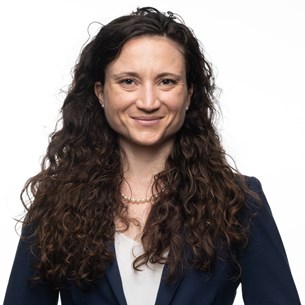Meeting
2022 ASCO Annual Meeting

The University of Texas MD Anderson Cancer Center, Houston, TX
Elise F Nassif , Manoj Chelvanambi , Lili Chen , Chia-Chin Wu , Ashish Damania , Emily Zhi-Yun Keung , Russell G. Witt , Michael White , Nadim J. Ajami , Matthew C. Wong , Neeta Somaiah , Boris Sepesi , Sreyashi Basu , James Patrick Allison , Padmanee Sharma , Kevin McBride , Wolf-Hervé Fridman , Jennifer Ann Wargo , Tina Cascone , Christina Lynn Roland
Background: While ICB has significantly improved clinical outcomes across several cancer types, only 15-20% of patients develop a durable response. Thus, novel and targetable biomarkers are needed. There is increased appreciation of the role of the gut microbiome, and TLS and B-cells in the TME in response to ICB. Here, we investigate the association between these two determinants of response in patient specimens from three randomized phase 2 neoadjuvant ICB trials of nivolumab +/- ipilimumab (melanoma (MEL; NCT02519322; n=23), non-small-cell lung cancer (NSCLC; NCT03158129; n=31), sarcoma (SARC; NCT02301039; n=17). Methods: Patients were categorized as responders (R) or non-responders (NR) based on major pathologic response, as defined in each histotype (MEL and NSCLC viable tumor ≤10%; SARC hyalinization>30%). Baseline fecal samples were profiled via 16S rRNA gene sequencing from all three cohorts to assess the composition of patient gut microbiomes. Transcriptional profiles of biopsies collected pre-ICB for MEL and SARC, and post-ICB for MEL, SARC, and NSCLC were used to assess TLS (CXCL13, CCL18, CCL19, CCL21) and B-cell (PAX5, CD79B, CR2, MS4A1) signatures in the TME, by calculated mean values of normalized gene expressions. Comparison between samples were carried out using the Wilcoxon signed-rank test. Results: There were 21 R overall (NSCLC n=9; MEL n=9; SARC n=3). Despite significant differences in alpha and beta diversity across cohorts, relative abundance of Ruminococcus was significantly higher in R (p=0.003; NSCLC p<0.001; MEL p=0.049; SARC p=0.7). B-cell signature was significantly higher post-ICB in R (R vs NR, post, TLS p=0.13; B-cell p=0.003), with consistent trends in each cohort. Longitudinal evaluation of transcriptional profiles showed that expression of TLS and B-cell signatures increased with treatment in R (pre vs post, MEL and SARC; TLS p=0.0098; B-cell p<0.001) but not NR (pre vs post; TLS p= 0.87; B-cell p= 0.15), with consistent trends in sarcoma and melanoma subgroups. Combined correlative analysis with matched specimen showed that patients with higher pre-ICB relative abundance of Ruminococcus (above median) had significant increase in B-cell signatures (pre vs post, MEL and SARC; TLS p=0.052; B-cell p=0.002) which was not seen in patients with low abundance (below median) of Ruminococcus (pre vs post, MEL and SARC; TLS p=0.56; B-cell p=0.69). Conclusions: Unifying signatures in the gut microbiome are associated with response to ICB and increased B-cell infiltration and TLS formation in the TME. We expect these findings to energize mechanistic studies and new microbiome-based interventional approaches to improve clinical outcomes with ICB. Clinical trial information: NCT02519322, NCT03158129, NCT02301039.
Disclaimer
This material on this page is ©2024 American Society of Clinical Oncology, all rights reserved. Licensing available upon request. For more information, please contact licensing@asco.org
2022 ASCO Annual Meeting
Clinical Science Symposium
Looking Everywhere for Determinants of Benefit From Immunotherapy
Developmental Therapeutics—Immunotherapy
New Targets and New Technologies (IO)
NCT02519322, NCT03158129, NCT02301039
J Clin Oncol 40, 2022 (suppl 16; abstr 2511)
10.1200/JCO.2022.40.16_suppl.2511
2511
Abstract Disclosures
2023 ASCO Annual Meeting
First Author: Dirk Schadendorf
2022 ASCO Annual Meeting
First Author: Julie R. Brahmer
2021 ASCO Annual Meeting
First Author: Luis G. Paz-Ares
2022 ASCO Annual Meeting
First Author: Luis G. Paz-Ares